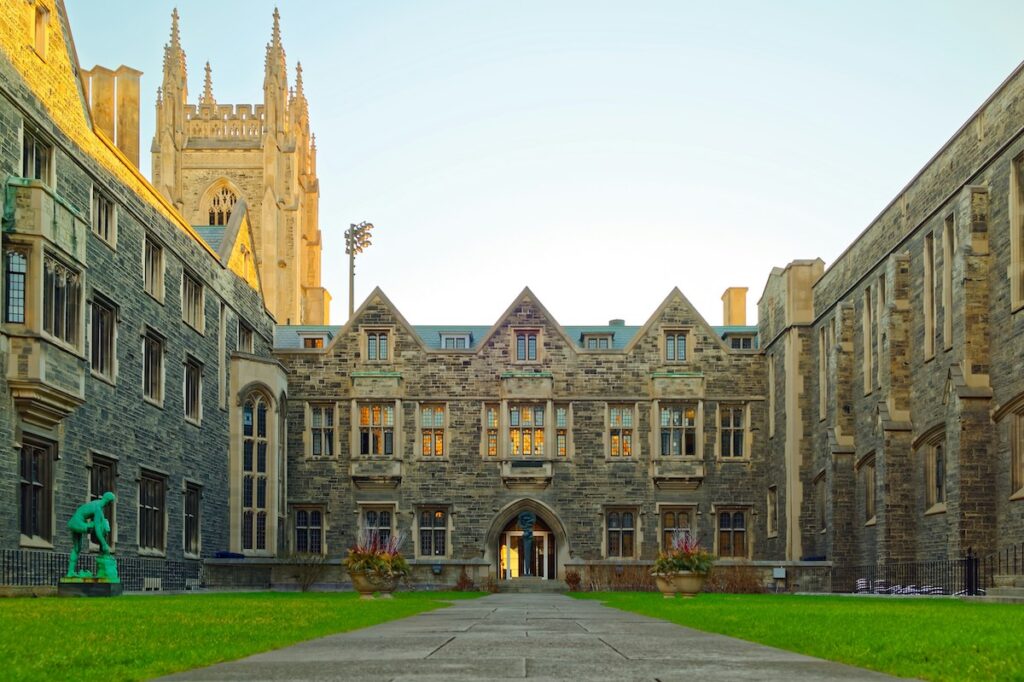On 4 June 2024, global higher education experts Quacquarelli Symonds (QS) released the QS World University Rankings 2025. The list features 1,500 universities across 106 higher education systems. The US leads with 197 institutions, followed by the UK with 90 and Mainland China with 71.
Big Four rankings
For the 13th year in a row, the Massachusetts Institute of Technology (MIT) took the top spot in the rankings, followed by UK institutions Imperial College London and the University of Oxford in second and third place, respectively. The US and the UK hold four spots each in the top 10 rankings, with Switzerland (ETH Zürich – Swiss Federal Institute of Technology) and Singapore (National University of Singapore or NUS) rounding off the list.
US
The US continues to dominate the rankings, with four of its top 10 universities earning 100 in the ‘Academic Reputation’ indicator. This underscores the prestige that employers, academics and students alike award the region.
UK
The UK performed the strongest in the ‘International Student Ratio’ indicator. It achieved the world’s second-highest average score among countries with 10 or more ranked universities (behind only Saudi Arabia). This highlights the UK’s consistent global appeal to student bodies from around the globe.
Canada
Canada was recognised for its institutions’ commitment to sustainability, positioning it as a ‘global leader’ for environmental, social and governance strategies and initiatives involving the United Nations’ Sustainable Development Goals (SDGs). QS named the University of Toronto as the world’s most sustainable institution.
Australia
Australia managed to get three of its top universities into the top 20. It was also noted as having world-leading levels of internationalisation as three schools achieved perfect scores in the ‘International Students’ indicator. Australia also dominates in ‘International Research’ in the Asia-Pacific region.
The rise of alternative study destinations
The QS World University Rankings 2025 suggest a shift in international student preferences. While the Big Four countries continue to hold significant places on the list, alternative study destinations are on the rise. Asian universities, in particular, are climbing up the rankings.
Notably, India has shown remarkable progress, with 91% of its 46 ranked universities either going up, remaining stable or entering the list as a newcomer (though none are in the Top 100 yet). Moreover, 68% of China’s universities’ rankings have also improved.
Indonesia, Pakistan and Turkey also recorded noteworthy improvements, along with Latin America which has sent four universities to the top 100.
The growth of emerging study-abroad destinations is suspected to be caused by policy changes in the majority of the Big Four countries. While the UK, Canada and Australia make adjustments to balance domestic obligations and the international education sector, students are exploring other regions that could provide similar opportunities for academic excellence and career development.
upGrad GSP Partner Institutions in the Top 100
upGrad GSP is proud to be partners with institutions recognised as some of the top universities in the world:
- The University of New South Wales – Sydney, Australia (19)
- The University of Queensland – Brisbane, Australia (40)
- University of Auckland – Auckland, New Zealand (65)
- The University of Western Australia – Perth, Australia (77)
- University of Glasgow – Glasgow, UK (78)
- The University of Adelaide – Adelaide, Australia (82)
- Trinity College Dublin – Dublin, Ireland (87)
- University of Technology Sydney – Haymarket, Australia (88).
Contact our business development experts to learn more about these institutions and the opportunities they offer for international students.




